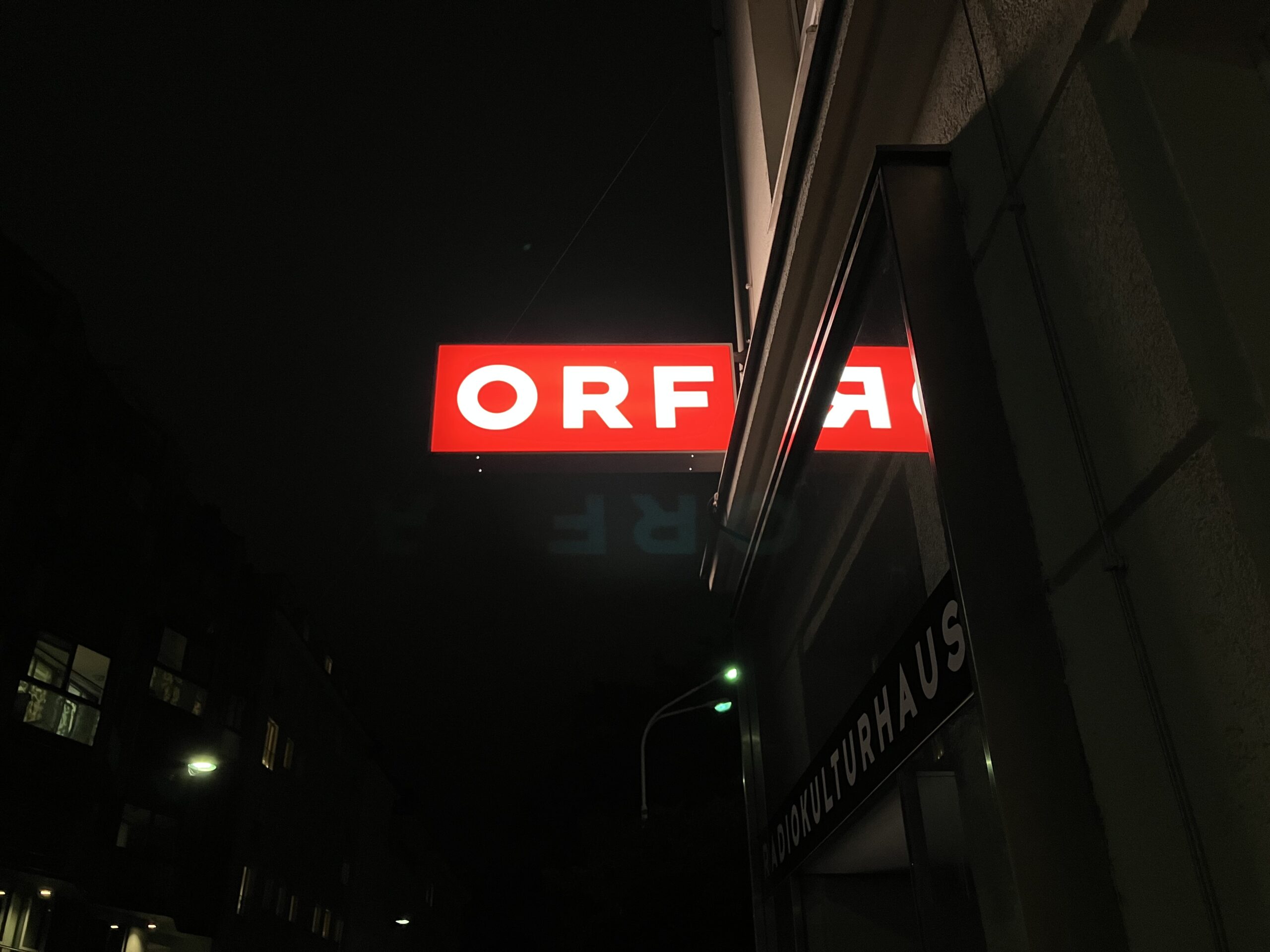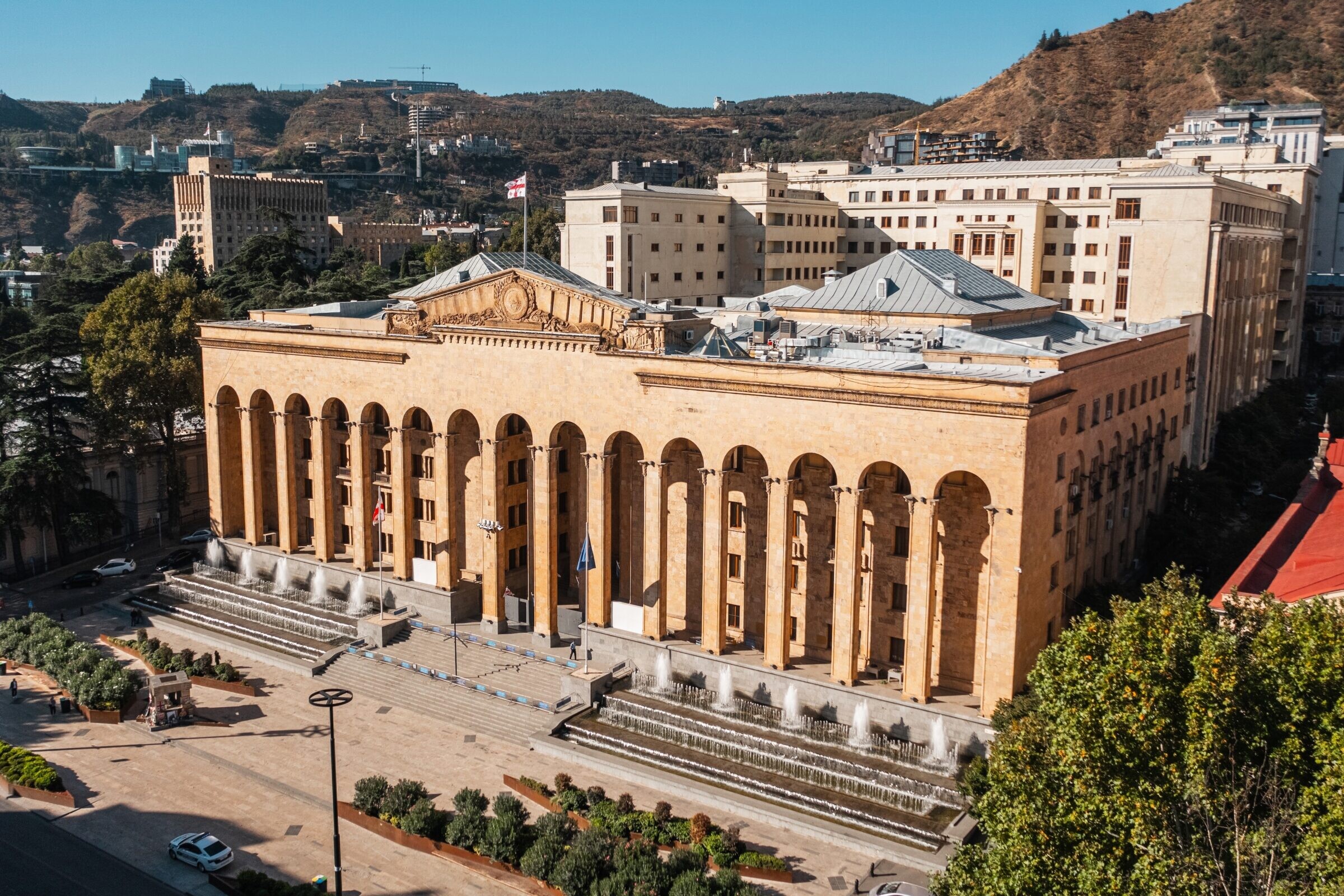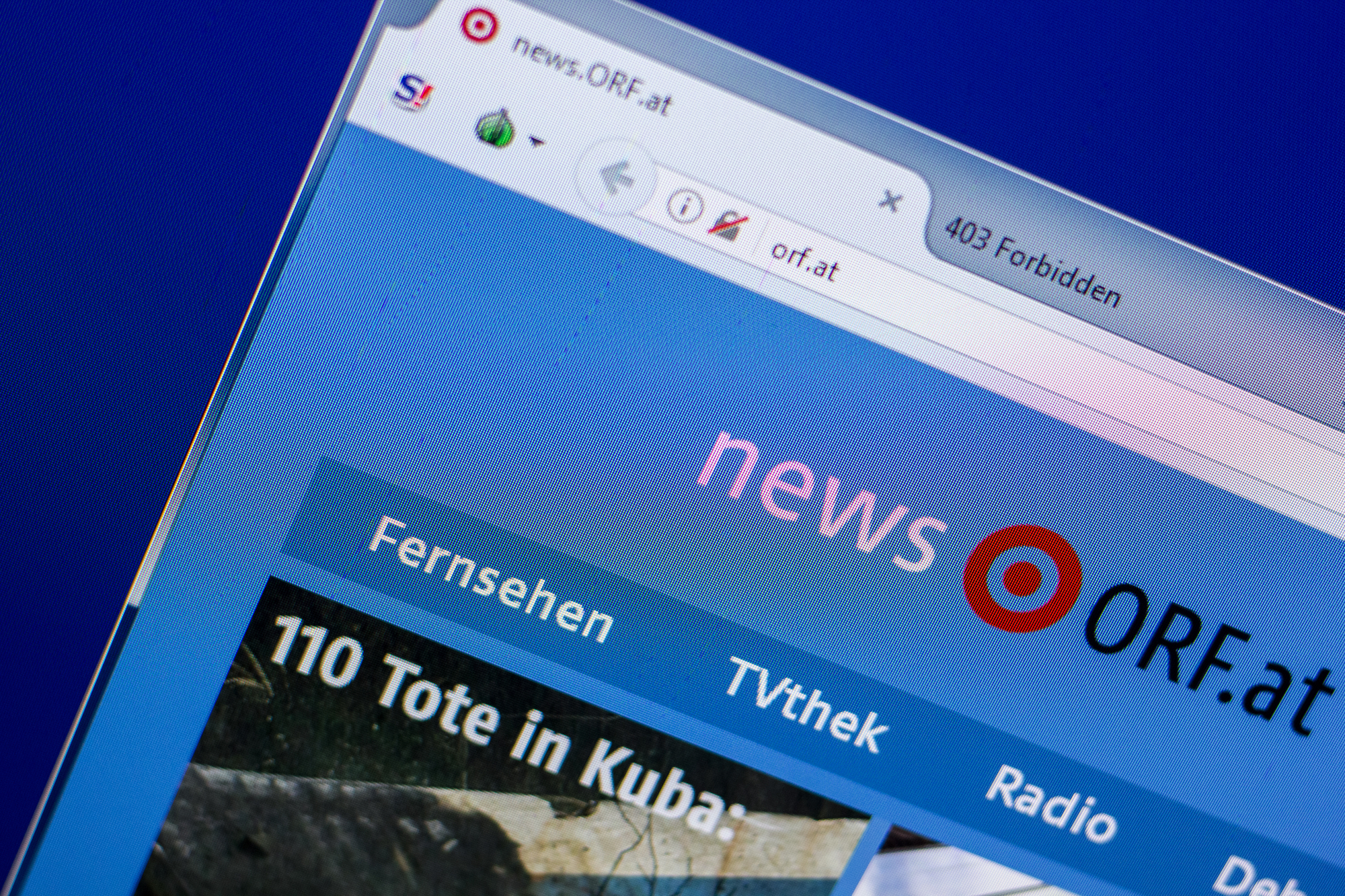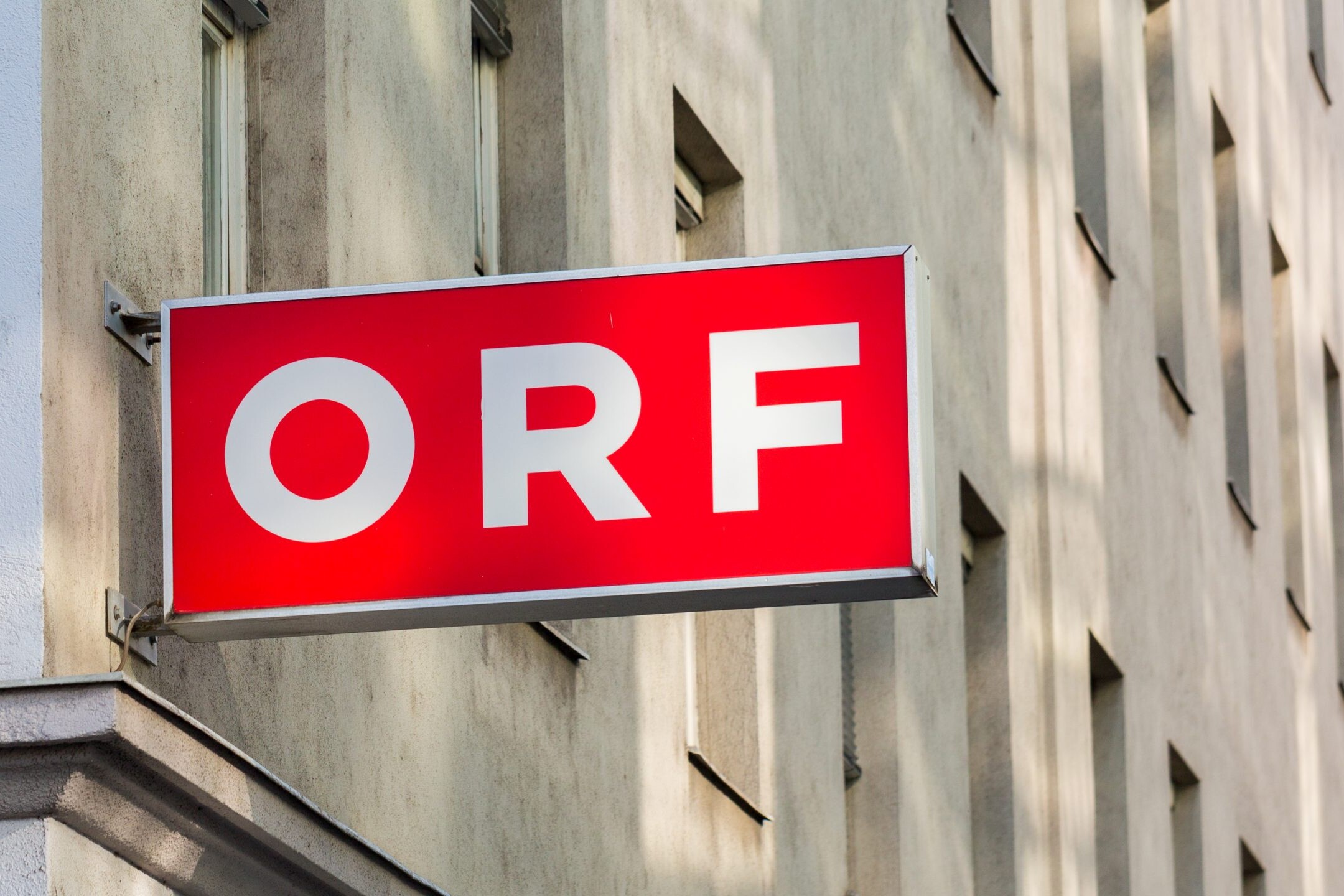Tough start for ORF’s new house levy funding model
15th January 2024
The new ORF law and household levy funding model started on the 1 January, but has already created a dispute with the newspaper publisher lobby.

IN BRIEF:
- The new Austrian Public Service Media Act came into effect on 1 January, which sees ORF funded via a household levy, and a set of rules regarding transparency and the mission of public service media.
- The VÖZ (organisation lobbying for newspaper publishers) claimed the new law as being deceitful and favouring public media.
- The ORF’s Director General rejected the accusations from the VÖZ.
- The ORF announced that penalties over the failure to pay the new contribution would be a last resort and should be put on hold until the summer.
IN FULL:
– By Charlotte Pion
Only a few days after the new law for public media in Austria came into effect (which established a new household levy funding mechanism), dissent resonated between the lobbying organisation of newspaper publishers (VÖZ) and the ORF. The matter quickly became a topic for politicians ahead of the coming elections in autumn 2024.
From GIS to house levy
The newly established ORF contribution replaced the so-called “GIS fee” (Gebühren Info Service GmbH) – or licence fee – which was mandatory for households with a TV and/or a radio. Since 1 January, Austria adopted a household levy funding model, similar to the German and Swiss funding systems. The new ORF contribution, amounting to €15.30 per month for three years, would be collected from every household, regardless of whether they own a television or radio.
This new funding model for public media was established with consideration of new technological devices such as smartphones, computers and tablets and their capabilities to access public media content beyond traditional devices.
In general, this new fee would reduce the bill of the majority of people – 3.2 million – who used to pay for the licence fee. However, according to Der Standard, the contribution would not be the same everywhere in Austria, as some of the federal states collected their own state taxes on the former licence fee. Only Burgenland, Styria, Carinthia and Tyrol added state taxes to the contribution which made it more expensive for the people there.
Read more: ORF: Law amendment sees digital focus
Meanwhile, the new public media contribution should increase the number of taxpayers by 714,000, according to Ministry of Finance data, while companies of a certain size will also be compelled to provide a contribution.
They anticipated to receive €747 million from these contributions. The ORF would set aside 25 million euros for potential cost increases, 22 million euros would be allocated to the OBS for collection, and about 17 million euros were planned for “claim-related expenses.” This strategy aimed to fulfil their public service mandate using €683 million solely from the household levy.
In addition to this, the federal government is expected to provide some compensation for certain losses (VAT on GIS contributions) and also to provide support for the next three years of the Radio Symphony Orchestra and the ORF Sport channel, which is slowly being converted into a streaming service.
ORF’s Director General Roland Weißmann announced that the administrative penalties mentioned in the new ORF Act (up to € 2,180) over the failure to pay the new contribution would be a last resort and should be put on hold until the summer.
As previously reported, ORF also has to cut costs, by €300 million, before 2026. Mr. Weißmann introduced a financial plan approved by the Board of Trustees, and seemed to expect positive results for 2024.
Subscribe toour newsletter
Keep updated with the latest public
media news from around the world
Transparency and public service media values
The new ORF law was also meant to improve the transparency of public media in Austria through the publishing of reports awaited for the first time in March. However, as reported by the Kurier, the ORF Works Council seemed to be willing to take legal actions against it, arguing that transparency obligations should not only apply to ORF but also other public organisations.
Beside improving the transparency of ORF, the public media law was also intended to improve and foster public service media values, by prescribing what sort of services and content the contribution should be put towards.
ORF has the responsibility to deliver thorough and impartial news and educational content, foster an understanding of democratic living, economic dynamics, and sustainability. It should also seek to engage viewers on European security policy, comprehensive national defence, and stimulate interest in active sports. The programming was designed to take into account diverse population groups and encourage appreciation for art, culture, and science.
Dissent between broadcaster and publishers
The dispute between the Austrian public broadcaster and the organisation lobbying for newspapers publishers (VÖZ) has a long-standing history. VÖZ has consistently urged ORF to stop offering online news content in the fashion of traditional news media. ORF’s news website, the so-called “Blaue Seite” (Blue page), had been too “newspaper-like” and represented a threatening competitor to private publishers, argued VÖZ’s managing director Gerald Grünberger.
This time, the ongoing dispute concerned the interpretation of the legal text of the new ORF Act. Mr Grünberger told the Austria Press Agentur (APA) about ORF.at’s format similarity to newspapers’ content and declared the ORF Act was a “deceit”.
“The new look of ORF.at meets all the legal requirements in every respect, and at the same time owes a debt of gratitude to the millions of users who rightly demand the best possible information from an ‘ORF for everyone.” – Roland Weißmann, Director General of ORF
The main issue here is the newly prescribed maximum number of articles on the ORF news page cannot be more than 350 per week. To avoid breaching this, VÖZ claimed that ORF has been redirecting some articles from its main news page to various subpages where the restriction does not apply.
One of the points raised by VÖZ was this: if the ORF’s Blaue Seite, funded by the public media contribution, offered free access to news, how were private news media supposed to justify charging for access?
Mr Grünberger held out the prospect of bringing the issue to the media authority KommAustria.
In a press release published by the ORF, the public media Director General categorically rejected the accusations made by VÖZ. He stated that a “Healthy competition is one thing, the insinuation of acting unfairly is quite another. In this case, the limit of what should be tolerated has been reached. The new look of ORF.at meets all the legal requirements in every respect, and at the same time owes a debt of gratitude to the millions of users who rightly demand the best possible information from an ‘ORF for everyone’. Unfortunately, in this campaign against ORF’s online presence, reporting and the interests of owners are being mixed up, as has already been the case in recent months. This is why we will not hesitate to lodge a complaint if accusations continue to be made that damage ORF’s credibility”.
A politically divisive issue
The financing of public media has been a highly debated topic in the last few months and did not escape from the political critics. The leader of the right-wing populist party FPÖ (Freedom Party of Austria), Herbert Kickl, has renewed his announcement that he will immediately abolish the new budget levy if his party makes it into government in autumn 2024.
Meanwhile, the government has to deal with the ORF law again because the Constitutional Court has classified the composition of the supervisory bodies as partially unconstitutional. A solution must be found by March 2025.
Related Posts
5th December 2023
Funding cuts, freezes and reviews faced by many public broadcasters
Viable and sustainable funding for…



